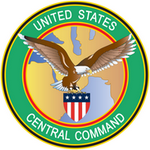skip to main |
skip to sidebar

(The Daily Beast) Obama keeps trying to blame Maliki, but his administration left Baghdad vulnerable so he could claim in 2012 he’d ended the war he’d opposed all along.
The question “Who lost Iraq?” will inspire discussion, debate, and deconstruction by American foreign policy experts and practitioners for generations to come. And with good reason: the implosion of Iraq and the expansion of al-Qaeda-inspired militant movements across the heart of the Middle East represents the type of monumental setback for American foreign policy not seen since the Cold-War-era debates over “who lost China” and “who lost Vietnam.”
But while determining who (or what) is most responsible for the current Iraq debacle is important, of greater significance is figuring out what it means for America’s broader role in the world, and for an Obama White House that still has more than two years left on the ledger.
By any measure, the outlook appears grim. Indeed, Iraq is simply the most recent foreign policy calamity for an administration obsessed with reducing America’s role in the world. There is still time for a course correction. But for that to happen the administration needs to become far less concerned with winning the political “blame game” over Iraq, and focus on restoring America’s flailing global leadership.
It certainly does not inspire confidence that the White House is now in full defensive mode on Iraq, seeking to absolve itself of any responsibility for the stunning turn of events. The administration is of course blaming former president George W. Bush for starting the war in the first place (obviously true—but large bipartisan majorities in Congress also voted for the war). It is also trying to lay all blame on the Iraqi government for supposedly rejecting a proposal to leave behind a residual U.S. troop presence in Iraq after the prior Status of Forces Agreement (SOFA) expired at the end of 2011.
But facts are stubborn things. And the fact is Iraq, due largely to Bush’s 2007 troop “surge” that then-Senator Barack Obama and most Congressional Democrats opposed, was stabilized when Obama entered the Oval Office in 2009. Al-Qaeda in Iraq (AQI) had been decimated, thousands of U.S. military advisers were training the Iraqi army and security forces, and tens-of-thousands of U.S. troops were helping sustain the peace; all allowing for the growth of a nascent, yet admittedly imperfect, democracy.
Circumstances were so improved that Vice President Joe Biden (another “surge” opponent) crowed in February 2010 that a stable, democratic Iraq was going to be “one of the great achievements of this administration.” In December 2011 President Obama doubled-down on that sentiment, praising America’s “extraordinary achievement” in helping create “a sovereign, stable, and self-reliant Iraq.”
So the real issue is not whether Iraq had been successfully stabilized, but why Obama would order a precipitous withdrawal of all U.S. troops and military advisers from such a fragile experiment in self-government. After all, the United States kept tens of thousands of troops in Germany, Japan, and Korea long after those wars ended.
More...


 31%
31% 21%
21%




















